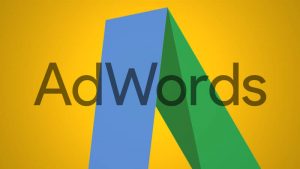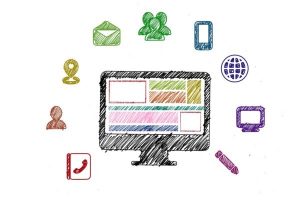Writers have understood the importance of cultivating a professional, personal brand for a long time. Publishers know that a recognised name on the cover is far more important to a prospective buyer than the logo on the spine.
Therefore, publishers encourage writers to market themselves to prospective readers. One thing publishers and agents look for in a non-fiction book proposal is whether the author is already a trusted authority on the subject, with an established audience or network. Does the name already have a following among those likely to be interested in the topic?
Today, the same is true of many industries – particularly in creative or knowledge-based fields. In a resume or cover letter, anyone can say they’re an expert at this or a rock star at that, even if *gasp* it isn’t always true.
But a history of engaged social media followers, blog subscribers or speaking gigs within your chosen field or specialisation are far more likely to be seen as proof of genuine talent or skill. And if you’re a freelancer, developing your own recognisable and trusted brand is even more important. Unless you create separate and distinct accounts, perhaps keeping one exclusively for family and friends, your personal and professional brands are one and the same. It’s you.
A strong personal brand doesn’t just demonstrate your knowledge or experience on a particular topic either. A professional career relies on your ability to communicate and build relationships just as much as it does on what you know or do. What better way to demonstrate these skills than through social media, or networking at events, or by writing insightful articles that people actually want to read.
Yes, there may be plenty of competition in your field – particularly if that field is marketing, where at least some self-promotion is virtually expected these days. Like any other branding exercise, the key is to find a niche, a way to stand out, a thing for which you become known. How recognisable is the content you publish under your own name? Without the limitations of having to work within someone else’s requirements, how might you best showcase your core talents or interests? What articles or blog posts would you write if you didn’t have to work to someone else’s editorial calendar?
While this work isn’t paid, it can still be rewarding in many other ways.
- Growing your network, which can in turn open up new opportunities.
- Attracting leads from potential future clients or employers.
- Experimenting with ideas and tools that may come in useful in future paid gigs.
The only reason I began getting paid work as a content writer was because I invested time and effort writing content for my own blog first. Those unpaid hours produced content I then shared to build my network. The posts also served as an informal portfolio, demonstrating my writing ability and subject matter expertise to potential employers and clients.
But there are limits to how much unpaid work you should be willing to do – particularly when someone else stands to reap the benefits.
Exposure doesn’t pay the bills
Whenever someone demonstrates that they’re willing to create content, build a website or pretty much do anything for free, there will be others who will try to exploit that.
The creative industries are full of businesses who see “exposure” as adequate reward for someone else’s effort and IP – and creative freelancers are particularly prone to enquiries of this kind.
Certainly, an unpaid gig can sometimes be a valuable opportunity, perhaps to reach a new or wider audience. However, a lot of unpaid or low paid “exposure” gigs benefit the client far more than the creator.
They have your content on their website or your design on their products, and that might help them build their audience. But how much of that audience do you expect to then filter through to you? How much will the client promote you and your talents alongside the content?
So, while I don’t believe you should dismiss all unpaid gigs automatically, you should always be very clear about what’s in it for you. The fee might not be in cash, but it needs to have an equivalent value to you. The quid pro quo needs to be unambiguous about exactly what they will do beyond simply taking your work for free. Merely publishing your content with the vague promise of “exposure” doesn’t say what effort they will put in to ensure both sides of the relationship benefit.
Afterwards, always measure how much you actually did benefit. Did you acquire any leads as a direct result of the activity? Did you increase your followers? Did your website or blog benefit from backlinks and a spike in traffic? Only then can you evaluate whether the effort you put in was worth the return.
After all, the point of developing your personal brand, the point of getting this exposure, is to attract paid work, not simply more offers to work for free.
And that can mean being honest with yourself about which activities are about developing your expertise and knowledge in a relevant area or reaching and impressing the right people – such as potential clients and employers – and which activities are really more of a hobby.
The line between professional development and hobby can quickly become blurred, particularly in social media. Are those cat memes really about building your professional network, or do you spend time creating them simply because you love cat memes? Beware of your personal brand becoming an excuse for procrastination.
Managing your personal brand can be a bit of a balancing act. I’ve certainly neglected my own blog of late, which is something I hope to rectify in the new year by blocking out an afternoon each week. When the schedule is full, naturally you don’t want to turn down actual paying work.
But just as you need to put time aside for business admin, bookkeeping, meetings and those other activities that don’t translate into billable hours, every business needs to invest some time into marketing itself to make sure there are enough billable hours next month.
The same is true for your personal brand. Careers are fluid and dynamic things – never more so than in 2020. Don’t wait until business is slow or it’s time to find that next job before you think about working on your personal brand. The time to mend the hole in the roof is when the sun is shining, not when the storm comes.
How will you work on your personal brand in 2021?
Business & Finance Articles on Business 2 Community
(39)
Report Post





